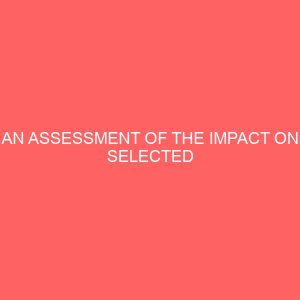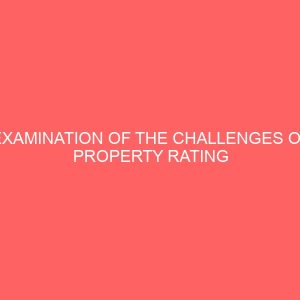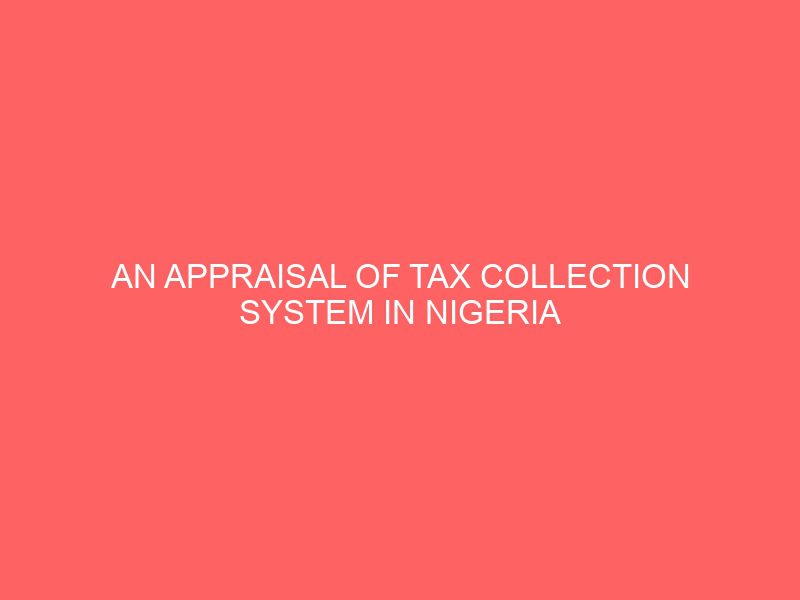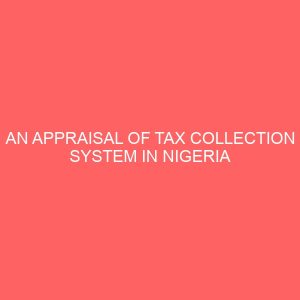Description
Abstract
An appraisal of tax collection system in Nigeria. The aim and objective of the topic are to critically analyze the assessment and collection procedure of tax iii Nigeria. To identify the problems militating against assessment and collection procedure, to know the possible effects of improving assessment and collection for an effective and efficient means of assessment and collection of taxes. Finally, to make useful suggestion and advise the government based on the findings. The significance of this study is that through tax is a nationwide phenomenon, the scope of this study is intended to cover only Imo state the tax laws in Imo state and the various types of taxes in operation. Taxation as one of the major sources of revenue to the unsuccessful implementation of economic policies on collection procedures for the government. Fraud as one of the problem because most taxpayers in Nigeria falsify their records so as to be declared high profit and pay high tax. Also, most of the taxpayers’ money cannot be accounted for. At times when taxes paid, the tax officials don’t give the government all the monies they serve some for themselves. The techniques used in the formulation of the hypothesis are the statistical method which is the chi-square method was chose to help in the interpretation of the data collected during the investigation. The null hypothesis (Ho) is used to determine its acceptance and or otherwise the acceptance of the alternative hypothesis (H1). The findings in all the project are that the assessment and collection in Nigeria are not effective. The researcher’s recommendations in order to boost the present tax collection system in Nigeria is to increase the revenue generated through tax improve taxpayers confidence in the government and willingness to pay tax.








Reviews
There are no reviews yet.